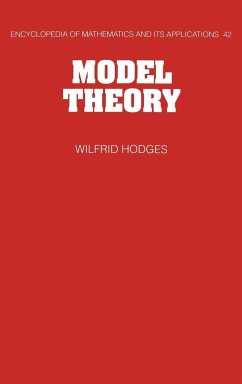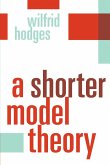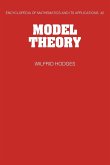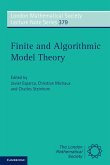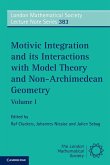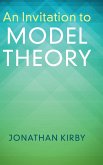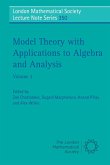This is an up-to-date and integrated introduction to model theory, designed to be used for graduate courses (for students who are familiar with first-order logic), and as a reference for more experienced logicians and mathematicians. Model theory is concerned with the notions of definition, interpretation and structure in a very general setting, and is applied to a wide variety of other areas such as set theory, geometry, algebra (in particular group theory), and computer science (e.g. logic programming and specification). Professor Hodges emphasises definability and methods of construction, and introduces the reader to advanced topics such as stability. He also provides the reader with much historical information and a full bibliography, enhancing the book's use as a reference.
Table of contents:
Part I. Language and Structure: 1. Naming of parts; 2. Classifying structures; 3. Structures that look alike; 4. Automorphisms; 5. Interpretations; Part II. Piecing Together a Structure: 6. The first order case; 7. The countable case; 8. The existential case; 9. The Horn case; Part III. Consequences of Compactness: 10. Saturation; 11. Combinatorial; 12. Expansions and categoricity; Examples; Bibliography; Index.
Model theory is concerned with the notions of definition, interpretation and structure in a very general setting, and is applied to a wide range of other areas such as set theory, geometry, algebra and computer science. This book provides an integrated introduction to model theory for graduate students.
An up-to-date and integrated introduction to model theory, designed to be used for graduate courses (for students who are familiar with first-order logic), and as a reference for more experienced logicians and mathematicians.
Table of contents:
Part I. Language and Structure: 1. Naming of parts; 2. Classifying structures; 3. Structures that look alike; 4. Automorphisms; 5. Interpretations; Part II. Piecing Together a Structure: 6. The first order case; 7. The countable case; 8. The existential case; 9. The Horn case; Part III. Consequences of Compactness: 10. Saturation; 11. Combinatorial; 12. Expansions and categoricity; Examples; Bibliography; Index.
Model theory is concerned with the notions of definition, interpretation and structure in a very general setting, and is applied to a wide range of other areas such as set theory, geometry, algebra and computer science. This book provides an integrated introduction to model theory for graduate students.
An up-to-date and integrated introduction to model theory, designed to be used for graduate courses (for students who are familiar with first-order logic), and as a reference for more experienced logicians and mathematicians.

